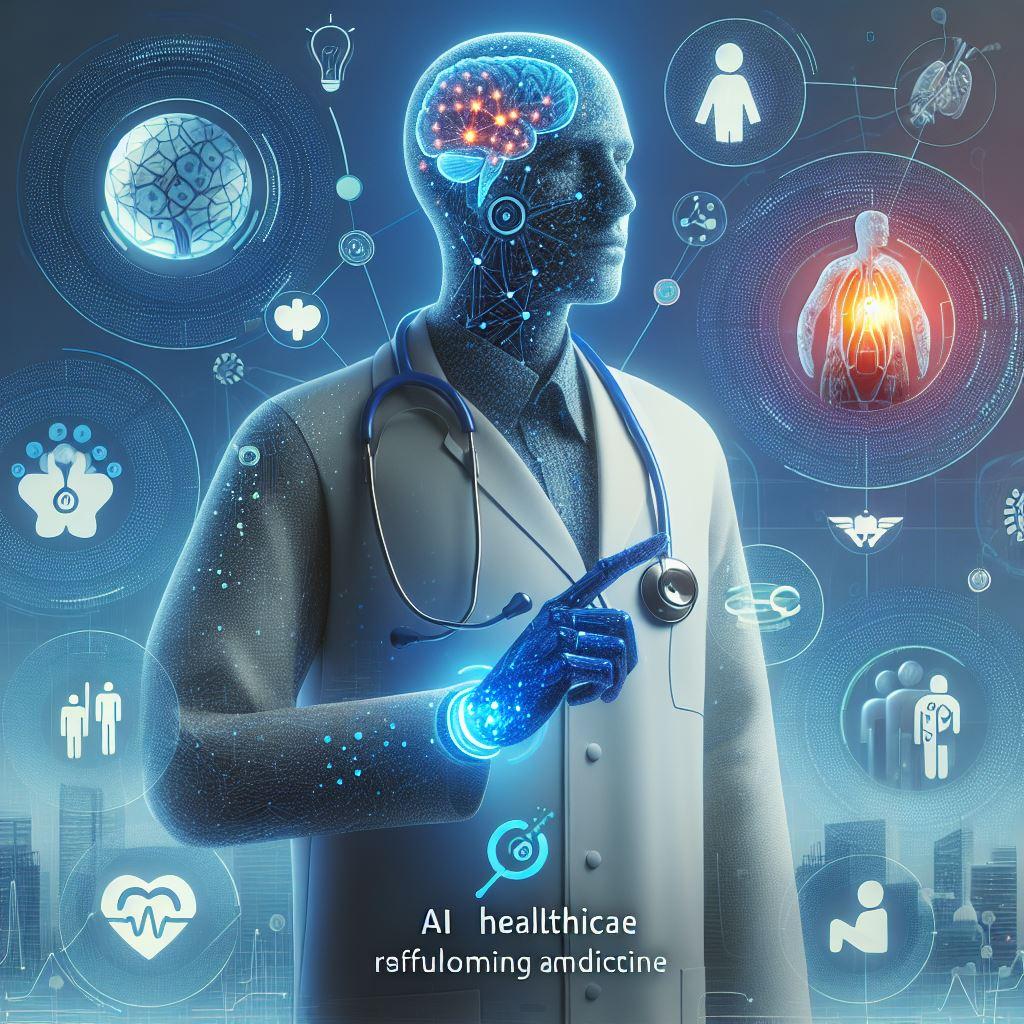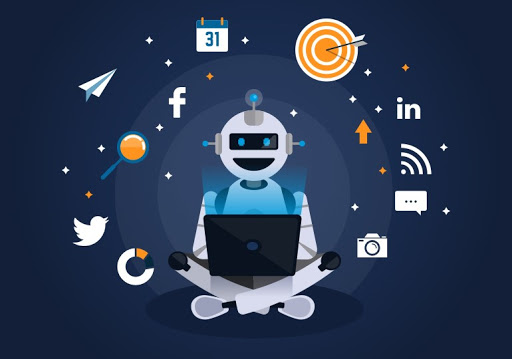Your cart is currently empty!
5 Best Artificial intelligence evolution – Quick Guide
Artificial intelligence
Introduction to Artificial Intelligence
Artificial Intelligence (AI) is a transformative force that has rapidly evolved over the past few decades, profoundly impacting various industries and aspects of everyday life. From automating routine tasks to advancing healthcare and revolutionizing industries like finance and transportation, AI’s influence is pervasive and growing. This article delves into the evolution of AI, its applications across different sectors, and the potential it holds for the future.
The Evolution of Artificial Intelligence
The concept of artificial intelligence dates back to the mid-20th century when pioneers like Alan Turing began exploring the idea of machines that could simulate human intelligence. The development of the first digital computers in the 1940s and 1950s laid the groundwork for AI research, leading to early experiments in machine learning and symbolic reasoning. The term “artificial intelligence” was officially coined in 1956 during the Dartmouth Conference, which is often regarded as the birth of AI as a field of study.
In the following decades, AI research experienced periods of both optimism and setbacks. Early AI systems, such as rule-based expert systems, were designed to mimic human decision-making processes in specific domains. However, these systems were limited by their inability to handle the complexity and ambiguity of real-world situations, leading to what is known as the “AI winter” in the 1970s and 1980s—a period marked by reduced funding and interest in AI research.
The Rise of Machine Learning
The resurgence of AI in the 1990s and 2000s was driven by advances in machine learning, a subfield of AI that focuses on developing algorithms that enable computers to learn from data. Unlike earlier rule-based systems, machine learning models can automatically identify patterns and make predictions based on large datasets.
The advent of big data and the exponential growth in computational power further accelerated the development of machine learning. Techniques such as neural networks, which mimic the structure and function of the human brain, led to breakthroughs in image and speech recognition. The introduction of deep learning, a subset of machine learning that uses multi-layered neural networks, enabled AI systems to achieve unprecedented accuracy in tasks such as natural language processing, computer vision, and autonomous driving.
Applications of Artificial Intelligence
Artificial Intelligence in Healthcare
One of the most promising applications of AI is in the healthcare sector. AI-powered diagnostic tools are revolutionizing the way diseases are detected and treated. For example, deep learning algorithms can analyze medical images, such as X-rays and MRIs, to identify abnormalities with a level of accuracy that rivals or even surpasses human experts. This has significant implications for early detection of diseases like cancer, where early intervention can be life-saving.
AI is also playing a crucial role in personalized medicine. By analyzing a patient’s genetic information, lifestyle data, and medical history, AI algorithms can recommend tailored treatment plans that are more effective and have fewer side effects. Moreover, AI-driven drug discovery platforms are accelerating the process of identifying new therapeutic compounds, potentially reducing the time and cost associated with bringing new drugs to market.
During the COVID-19 pandemic, AI proved invaluable in areas such as epidemiology, where it was used to model the spread of the virus, predict outbreaks, and optimize the distribution of resources like ventilators and vaccines. These applications underscore the potential of AI to not only enhance individual patient care but also improve public health outcomes on a global scale.

Artificial intelligence in Finance
The financial sector has been quick to adopt AI technologies to enhance efficiency, improve decision-making, and reduce risk. AI-driven algorithms are widely used in trading, where they analyze vast amounts of financial data to identify patterns and execute trades at speeds beyond human capability. These algorithms, known as high-frequency trading systems, have transformed the landscape of financial markets.
AI is also used in risk management and fraud detection. Machine learning models can analyze transaction data in real-time to detect unusual patterns that may indicate fraudulent activity, enabling financial institutions to respond swiftly to potential threats. Additionally, AI-powered credit scoring systems assess the creditworthiness of individuals and businesses more accurately by analyzing a broader range of data points than traditional methods.
Customer service in the financial sector has also been transformed by AI. Virtual assistants and chatbots, powered by natural language processing, provide personalized financial advice, assist with routine transactions, and handle customer inquiries, improving the customer experience while reducing operational costs.
Artificial Intelligence in Transportation

The transportation industry is undergoing a profound transformation, driven by advances in AI, particularly in the development of autonomous vehicles. Self-driving cars, which use a combination of sensors, cameras, and AI algorithms to navigate and make real-time decisions, have the potential to revolutionize transportation by reducing traffic accidents, improving fuel efficiency, and enhancing mobility for people who cannot drive.
Companies like Tesla, Waymo, and Uber are at the forefront of developing autonomous vehicle technology, with significant investments being made in AI research and development. While fully autonomous vehicles are not yet commonplace, the progress made in recent years suggests that they could become a reality in the near future.
AI is also being used to optimize logistics and supply chain management. Algorithms that predict demand, optimize delivery routes, and manage inventory in real-time are helping companies reduce costs and improve efficiency. In the context of global supply chains, AI can provide visibility into potential disruptions and suggest alternative strategies, making the entire system more resilient.
2.4. Artificial intelligence in Entertainment and Media

AI is revolutionizing the entertainment and media industries by enabling more personalized and engaging content experiences. Streaming platforms like Netflix and Spotify use AI algorithms to recommend movies, TV shows, and music based on users’ preferences and behavior. These recommendation systems are constantly refined as they learn more about users’ tastes, leading to increased user satisfaction and engagement.
In the gaming industry, AI is used to create more realistic and challenging opponents, as well as to generate dynamic content that adapts to players’ actions. This has led to the development of games that offer personalized experiences, where the story line and challenges evolve based on the player’s decisions.
AI is also being used in content creation. For instance, AI-driven tools can assist in writing scripts, composing music, and editing videos. In journalism, AI is used to analyze large datasets and generate reports, allowing journalists to focus on more complex investigative work.
The Future of Artificial Intelligence
Ethical Considerations
As AI continues to advance, it raises important ethical questions that society must address. One of the most pressing issues is the potential for AI to perpetuate or even exacerbate biases present in the data it is trained on. For example, if an AI system is trained on data that reflects historical biases, it may produce biased outcomes, such as discriminatory hiring practices or unfair credit decisions. Ensuring fairness and transparency in AI systems is crucial to prevent such outcomes.
Data privacy is another major concern. AI systems often require large amounts of personal data to function effectively, raising questions about how this data is collected, stored, and used. As AI becomes more integrated into daily life, ensuring that individuals’ privacy rights are protected will be paramount.
The Impact on Employment
The rise of AI also has significant implications for the workforce. While AI has the potential to create new jobs in fields such as AI development, data science, and robotics, it may also lead to the displacement of jobs in industries like manufacturing, transportation, and customer service. Preparing the workforce for an AI-driven economy will require investments in education and training programs that equip workers with the skills needed to thrive in this new environment.
The Path to Artificial General Intelligence
While today’s AI systems are powerful, they are limited to specific tasks and cannot replicate the full range of human intelligence. The development of Artificial General Intelligence (AGI), which would have the ability to perform any intellectual task that a human can, remains a long-term goal of AI research. Achieving AGI would represent a monumental leap in AI capabilities, but it also raises profound ethical and societal questions, including the potential risks associated with creating machines that could surpass human intelligence.
Conclusion
Artificial Intelligence is a rapidly evolving field that is reshaping industries and transforming the way we live and work. From healthcare and finance to transportation and entertainment, AI is driving innovation and opening up new possibilities. However, as AI continues to advance, it is crucial to address the ethical, societal, and economic challenges it presents. By doing so, we can ensure that AI develops in a way that benefits all of humanity, leading to a future where technology enhances our lives and contributes to a more equitable and prosperous world.
For more blogs, visit my blog page

Leave a Reply